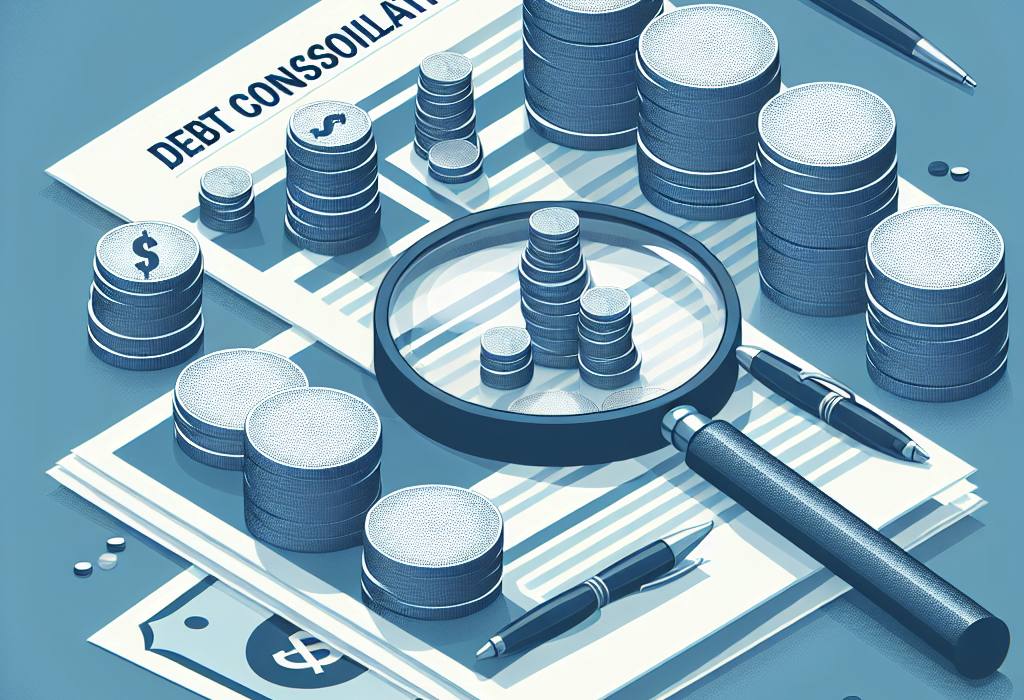Introduction
Debt consolidation is a financial strategy commonly used to simplify the process of paying off multiple debts. It involves a consumer contracting a new loan to pay off multiple smaller loans, thereby consolidating all the debts into one. Although debt consolidation can bring relief and respite to struggling debtors, it also has some risks that ought to be considered. This comprehensive guide will help you understand what debt consolidation is and how it operates.
Understanding Debt Consolidation
Debt consolidation, simply put, is the process of taking out a larger loan to pay off multiple smaller ones. In some cases, it can lower the overall interest rate, making repayment easier by having a single payment to focus on, instead of multiple disparate bills. This unification of debts provides mental relief to some as it organizes the debts into one manageable payment.
The Mechanics of Debt Consolidation
Debt consolidation works by taking out a new loan with a lower interest rate than your existing debts. This method effectively moves all your smaller debts into one larger debt. The process may involve different forms of loans, including a balance transfer on credit cards, a home equity loan, a personal loan, or a 401(k) loan among others.
Types of Debt Consolidation
There are several types of debt consolidation methods, each with varying terms and conditions.
Balance Transfer Credit Cards
A balance transfer credit card is an excellent strategy for those with credit card debt. It involves moving your other credit card balances onto one card with a lower interest rate, often with an introductory offer of 0% interest for a period between 6-21 months. It is essential to pay off the balance within the promotional period to avoid high interest when the promotion ends.
Debt Consolidation Loans
A debt consolidation loan is a type of personal loan that lets you combine multiple debts into one monthly payment. It involves getting a loan large enough to pay off your various creditors, then making payments to the new lender. The rate you receive depends on multiple factors, including your credit history and the term of the loan.
Home Equity Loans and Lines of Credit
Homeowners have the option of using the value of their home to consolidate debt. Home equity loans and lines of credit typically have lower interest rates than credit card and personal loans. The downside is that you put your house at risk in the event of default.
The Advantages and Disadvantages of Debt Consolidation
As with any financial strategy, there are benefits and drawbacks to debt consolidation.
Advantages
- One easy payment: Instead of juggling different payments, you only need to make one payment per month.
- Can lower overall interest rate: If you have high-interest debt like credit cards, a debt consolidation loan can reduce the amount of interest you’ll pay overall.
- Help improve credit score: By making punctual payments on the consolidated debt, your credit score can slowly improve.
Disadvantages
- Can create a false sense of financial relief: It feels like you have less debt because you’re making fewer payments – but the total amount of debt remains the same.
- The risk of losing valuable assets: If you consolidate your debt with a secured loan, such as a home equity loan, you put valuable assets like your home at risk.
- Potential fees: There may be costs associated with obtaining a new loan or transferring a balance, including origination fees, balance transfer fees, or closing costs.
Conclusion
Weighing the pros and cons is essential in determining if debt consolidation is the right strategy for you. Keep in mind that while debt consolidation can simplify your financial life, it only works effectively if you have an overall plan to curb your spending habits and avoid accumulating new debt. Always consult a financial advisor before making a decision and remember: in the end, your financial health depends mostly on wisely managing your money and paying off your debts in a disciplined way.
FAQs
1. Is debt consolidation a good idea?
Whether debt consolidation is a good idea depends entirely on your personal financial situation, the type of debt consolidation you’re considering, and whether the cost of consolidation is less than continuing to pay off your debts individually.
2. Does debt consolidation hurt your credit?
Initially, debt consolidation may lower your credit score. However, if you make timely payments on your consolidated debt, it can help improve your score in the long run.
3. What is the best method of debt consolidation?
The most effective method depends on your financial situation, credit score, and personal preferences. Options include balance transfers, personal loans, home equity loans, and borrowing from your retirement savings.
4. Can I consolidate my debt with bad credit?
While it may be more challenging, it’s not impossible. It generally depends on the lender’s willingness to take a risk with you.
5. Can all types of debt be consolidated?
Most types of unsecured debt, including credit cards, personal loans, medical bills, and utility bills, can be consolidated. Secured debts like your car loan or mortgage cannot be consolidated.













